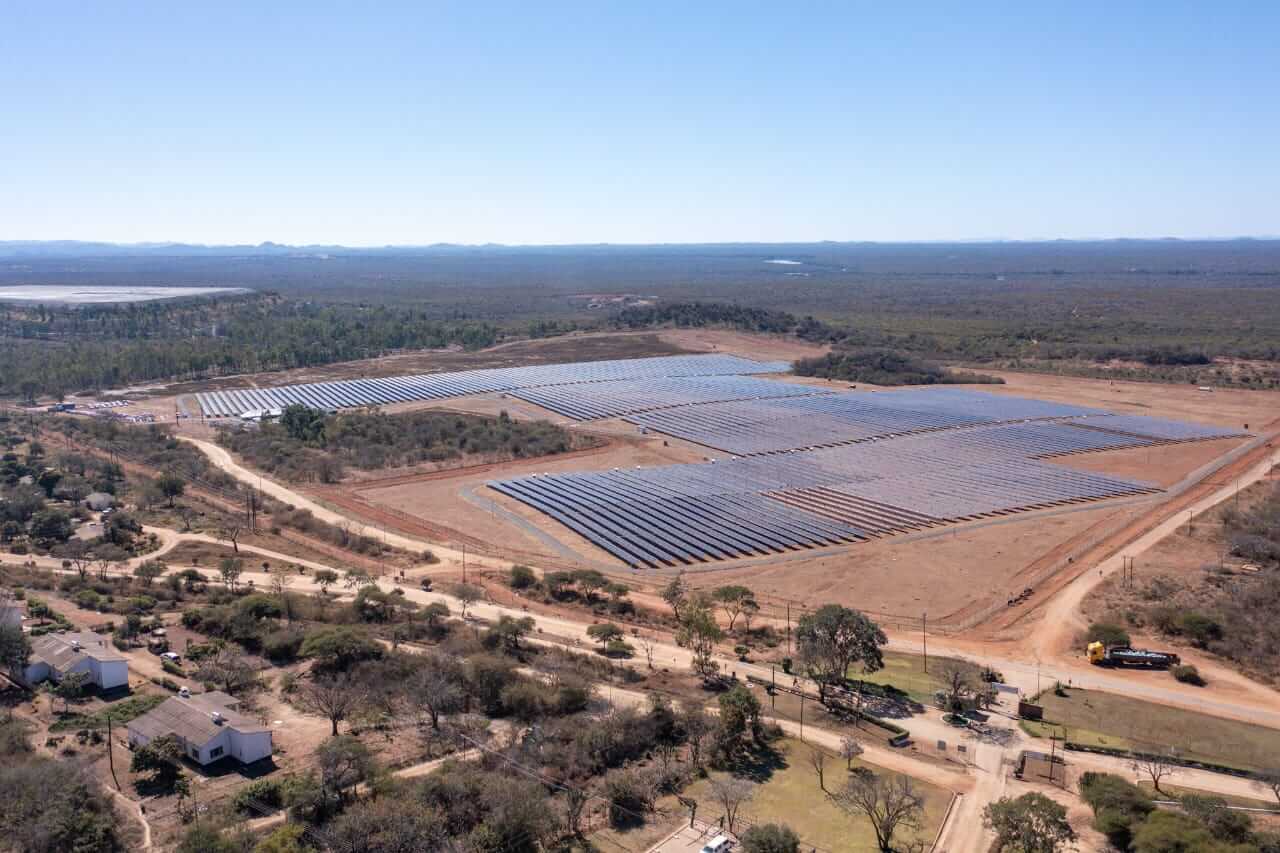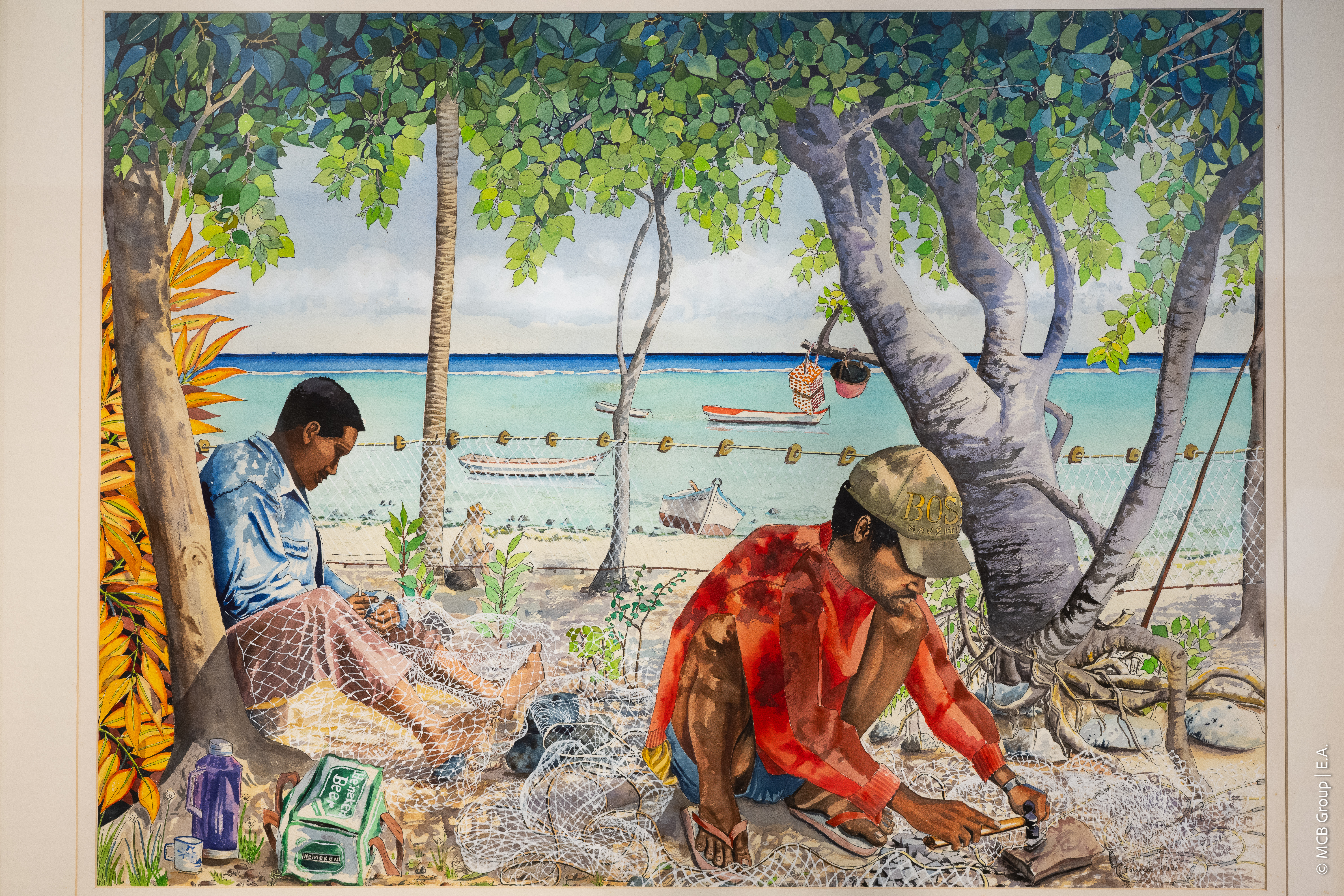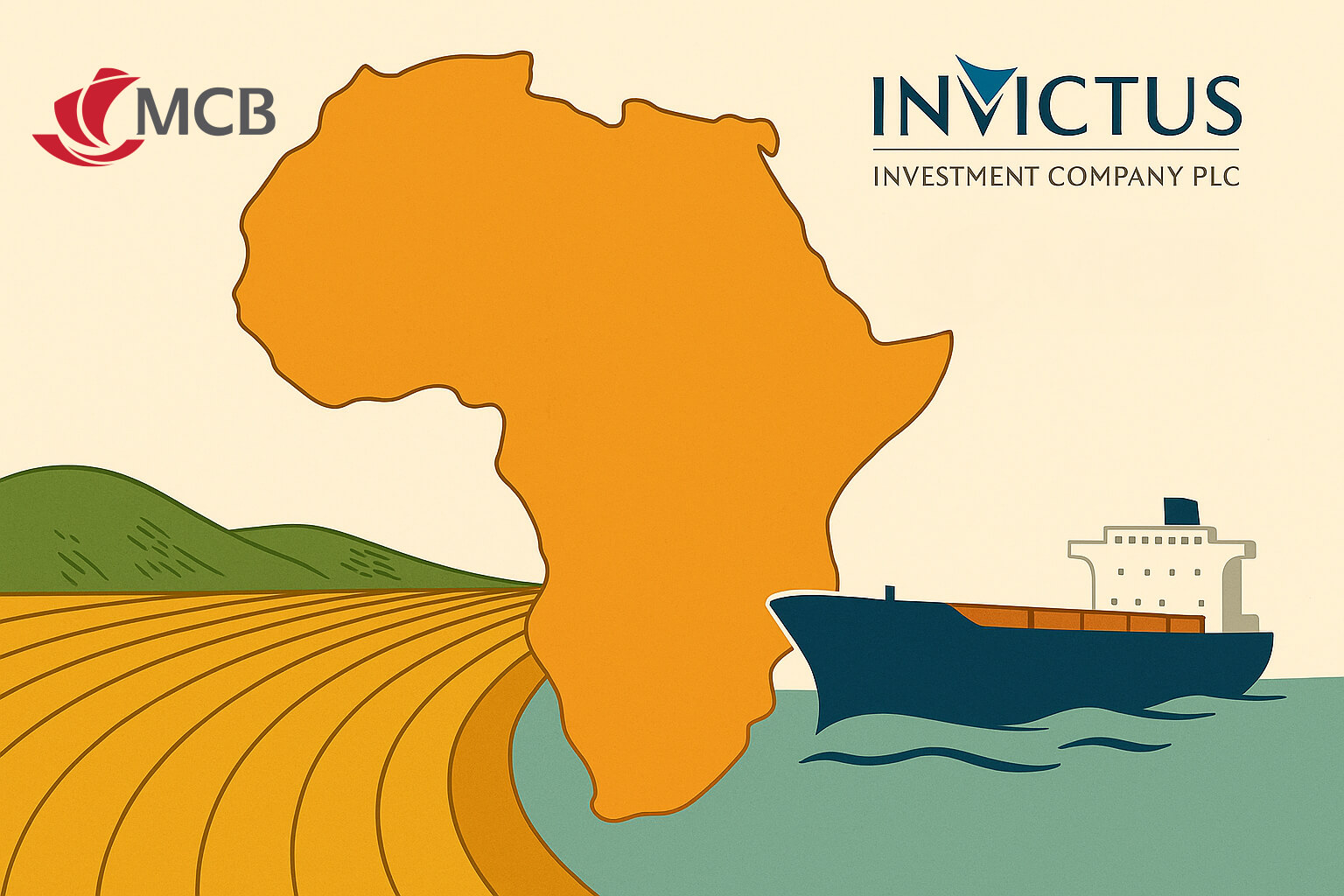- Home
- Investors Centre
- Sustainability
- Talent
- News
- Insights
- TH!NK
- Corporate Governance
- Company Profile
- Board of Directors
- Community
- MCB Offices
Contact Info
Financial market analysis: Trump’s return and its impact on Africa: navigating a liquidity crunch, dollar surge, and U.S. influence

Donald Trump’s return to the White House brings an unpredictable dynamic to global geopolitics, and while Africa remains a lower priority on Washington’s policy agenda, his presidency could indirectly impact the continent in significant ways. Three key themes are likely to shape Trump's influence on Africa: a liquidity crunch, African currencies under pressure from a surging dollar, and the U.S. struggle to reassert its influence on the continent.
1. Liquidity Crunch: Africa’s Access to Capital Markets Tightens
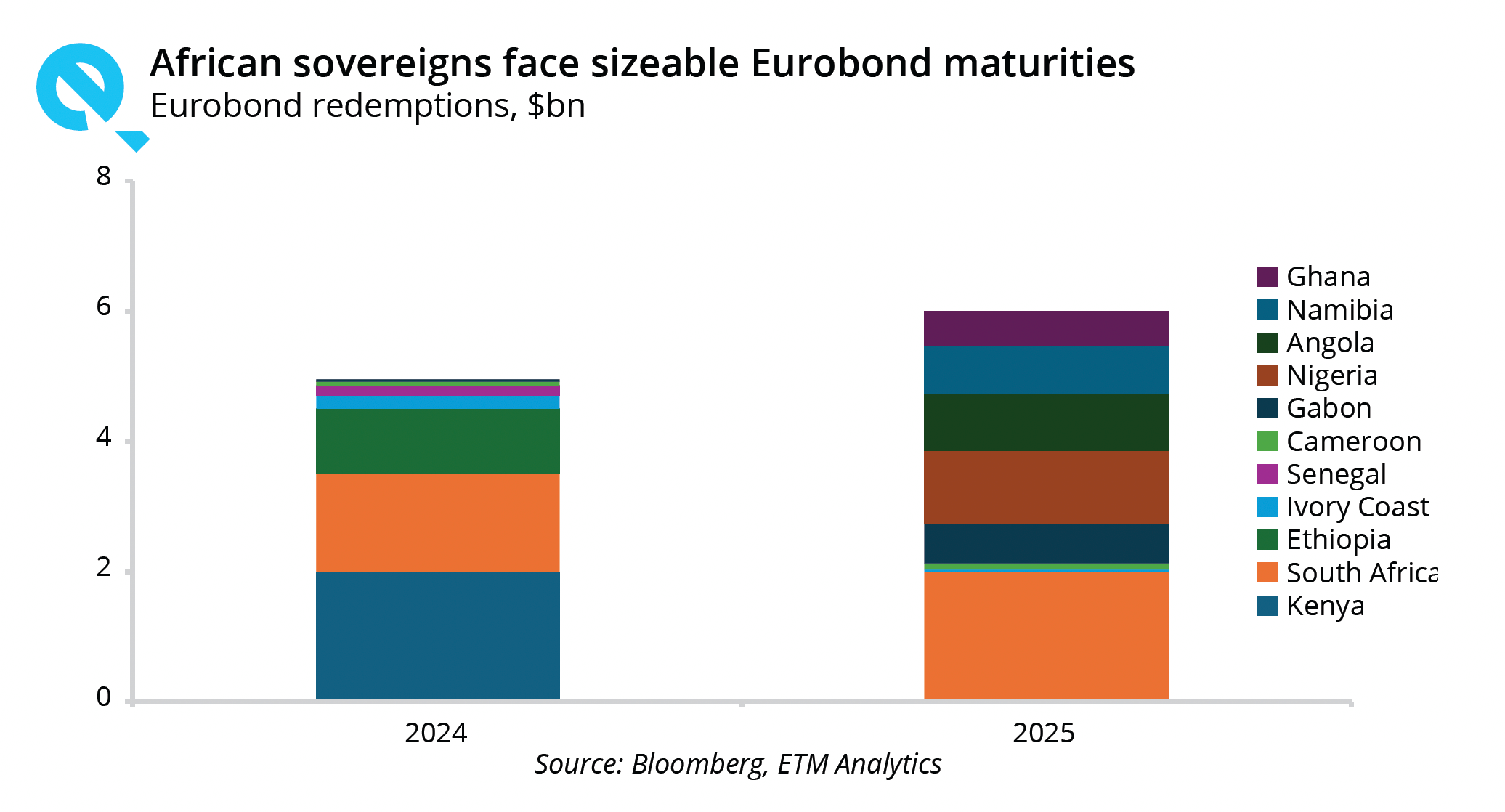
Trump’s expected embrace of fiscal expansion and policies that could drive inflation poses challenges for global financial markets. Higher global interest rates, a probable outcome of such policies, would exacerbate Africa’s ongoing funding squeeze. Since 2022, African governments have largely been shut out of international capital markets due to surging borrowing costs. Only a few nations like Benin, Ivory Coast, Kenya, Cameroon, and South Africa have managed to re-enter the Eurobond market this year, and even then, primarily out of necessity. For instance, Cameroon’s $500 million private bond placement at a 10% yield in July was a clear sign of desperation, given that double-digit yields are generally avoided unless funding is critical.
A second Trump administration, potentially marked by unorthodox policymaking, could see Eurobond issuance becoming even more challenging for African countries. With sub-Saharan Africa's debt redemptions set to rise to $6 billion in 2025 from $5 billion this year, many nations will be forced to return to the international markets despite the high costs. For those not needing immediate bond repayments but looking to bolster dollar liquidity or fund budget deficits, Eurobonds may lose appeal due to steep issuance costs. Instead, they might turn to alternatives like concessional loans from multilateral institutions, international aid, or domestic debt markets, which offer more favourable terms.
2. African Currencies Under Pressure from a Stronger Dollar
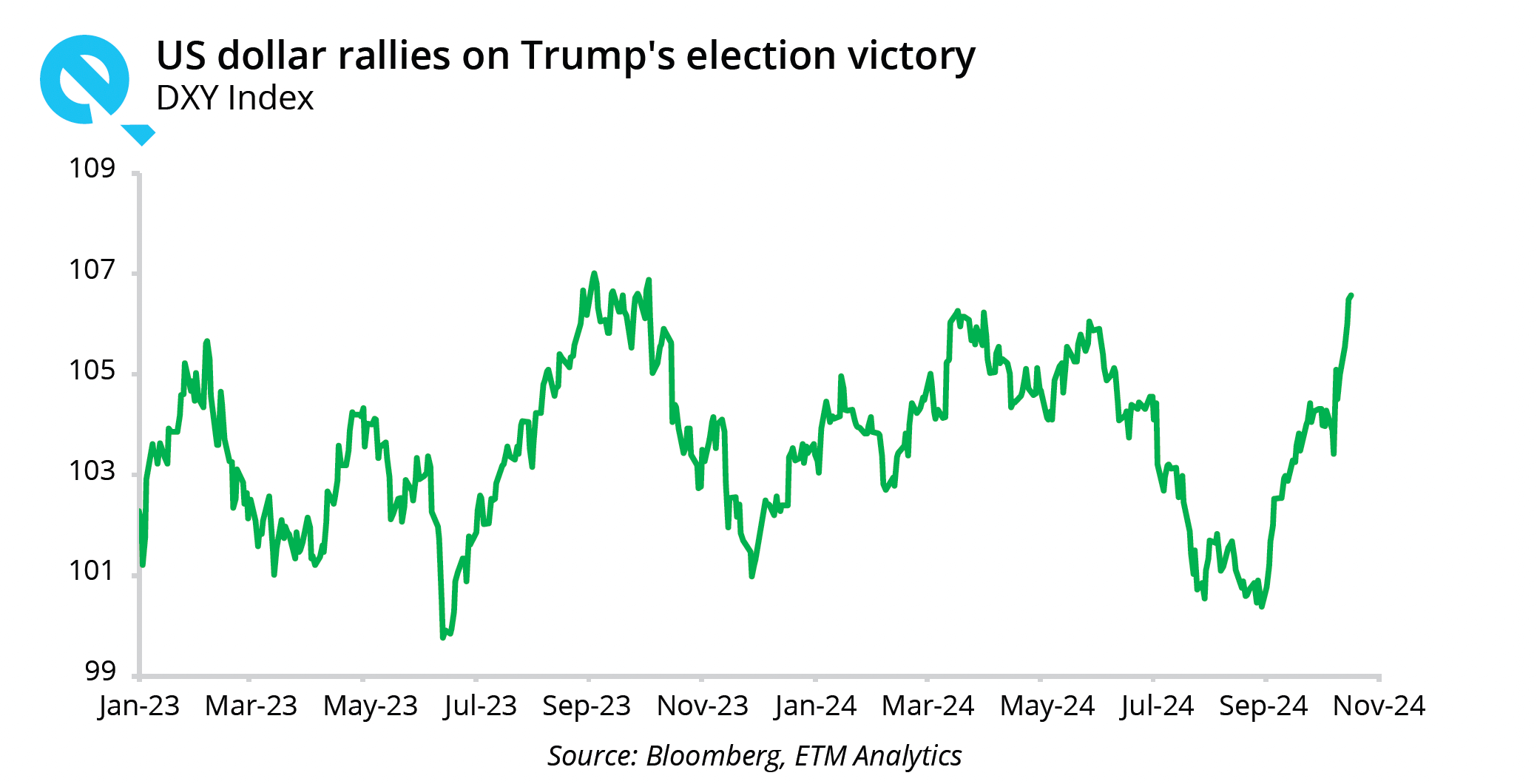
Trump’s policies are likely to sustain dollar strength, fuelled by expectations of robust U.S. economic growth, high interest rates, and potential trade tariffs. A stronger dollar would spell trouble for African currencies, driving inflation higher and increasing debt servicing costs across the continent. Weaker currencies not only erode purchasing power but also place significant pressure on governments already grappling with high debt levels.
To mitigate these challenges, some African nations are exploring ways to reduce their dependence on the dollar. For instance, Zambia, under the guidance of Bank of Zambia Governor Denny Kalyalya, is pushing for regional payment systems that prioritise local currencies. The Pan-African Payment and Settlement System, launched in 2022 as part of the African Continental Free Trade Area, aims to facilitate cross-border transactions without relying on U.S. or European clearing banks, thus reducing exposure to exchange rate volatility.
3. The U.S. Struggles to Re-establish Influence in Africa
Amid rising competition with China and Russia for influence in Africa, Trump's administration will have to contend with a continent that has shifted alliances. The U.S. has seen its diplomatic foothold weaken, evidenced by setbacks like losing its major spy base in Niger and failing to secure alternative arrangements in the Sahel—a region now dominated by Russian-backed military juntas. A Gallup poll this year highlighted China's increasing popularity in Africa, surpassing that of the U.S.
The Biden administration’s under-resourced embassies and diplomatic missteps, such as the lack of foresight in Sudan's conflict and unsuccessful negotiations with Niger's junta, have left Washington struggling to understand and respond to Africa's evolving dynamics. A former CIA analyst, notes that the U.S. faces “huge blind spots” in its diplomatic and military engagement across the continent, according to a Reuters report.
In contrast, Trump’s foreign policy approach may be more transactional, focusing on tangible benefits and potentially reviving support for U.S. businesses in Africa. However, this pragmatic stance could come at the cost of sidelining issues like democracy and human rights, particularly in regions with military rule. Trump's previous term saw controversial policies, such as referring to African nations in derogatory terms and imposing travel bans on several countries. Yet, some analysts, like former Trump envoy Tibor Nagy, believe that a more realistic and results-driven Africa policy could yield better outcomes this time around.
The challenge for the U.S. will be to rebuild its diplomatic presence in Africa amid staffing shortages and declining influence. Despite efforts to increase foreign service hires, the number of U.S. diplomats in Africa remains below pre-pandemic levels.
Trump’s second presidency could bring both challenges and opportunities for Africa. As the continent braces for tighter liquidity conditions, a stronger dollar, and shifting geopolitical alliances, African leaders will need to adapt to a more transactional U.S. approach. Navigating this new landscape will require a mix of resilience, regional cooperation, and strategic diversification away from over-reliance on Western financial markets.
For more information, please contact MCB Global Markets Team on [email protected]
Published in collaboration with our Financial Markets research partners, ETM Group.
Subscribe to our Email Alerts
Stay up-to-date with our latest releases delivered straight to your inbox.
Contact
Don't hesitate to contact us for additional info
Email alerts
Keep abreast of our financial updates.






